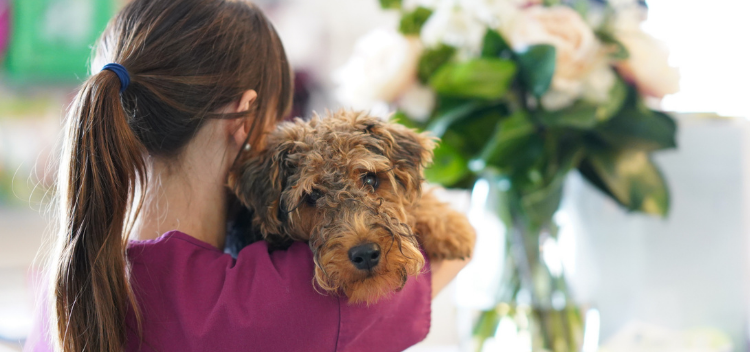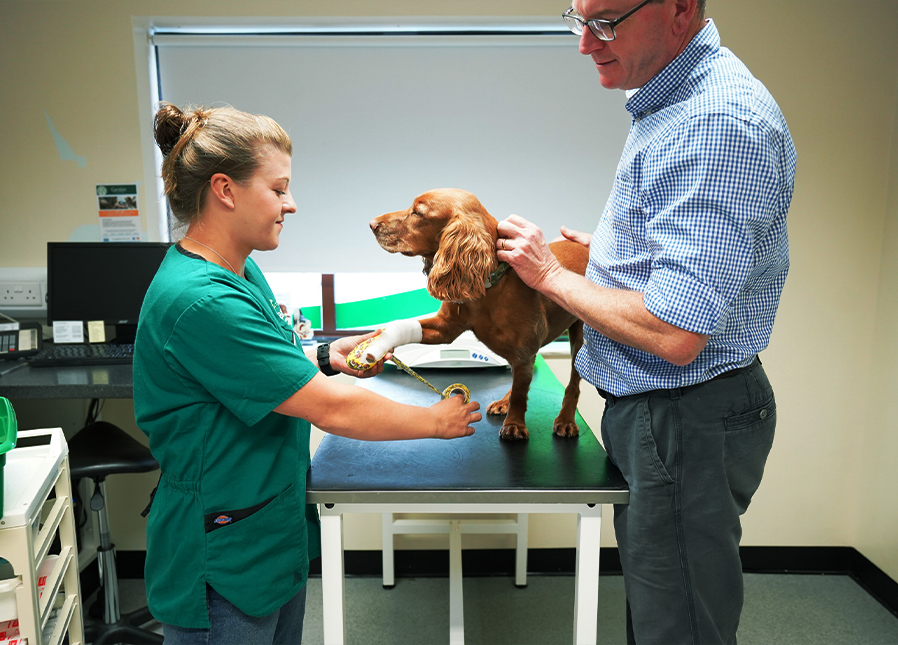
Pet Poisons
Keeping your animals safe
Read Garston Vets’ easy reference guide to keeping your pets safe from harmful substances
Common household toxins that are of concern to pets if eaten include:
- Grapes, raisins, currants, and sultanas
- Lilies – all parts of the plant
- Chocolate
- Onions
- Paracetamol and ibuprofen tablets
- Xylitol (a sweetener found in chewing gum, some sweets, and other foods)
- Rat & mouse poisons
- Slug baits
- Antifreeze
- Mouldy foodstuffs
IF YOU HAVE ANY CONCERNS ABOUT A TOXICITY IN YOUR PET, CALL US IMMEDIATELY:
01373 452225
See our out of hours emergency pet care information
If you suspect your pet has eaten or been in contact with any of the above, call the surgery for advice as soon as possible. If treatment is required, it will be more effective the sooner it is started. Keep any contents or ingredient lists to hand. We ideally need to know the substance that has been consumed, how much, what concentration, and at what time. Some poisons have a ‘toxic dose’, above which requires treatment and below which it may be safe to leave, whilst others are considered toxic no matter how much or little has been ingested.
Each toxicity requires its own approach to treatment. Commonly, the first step is to make your pet be sick, usually with an injection to empty their stomach of any remaining toxin. You should never try to make your pet sick yourself, unless instructed to do so by one of our Vets – depending on the substance consumed, you could make your pet’s condition worse. They may then be prescribed ‘activated charcoal’ to be given by mouth, which helps reduce absorption of any remaining toxic material.
Some cases will require more intensive treatment including blood tests and intravenous fluid therapy. These may be needed to monitor and support liver and kidney function. Other cases may need blood glucose levels checking, blood clotting times assessed, or neurological symptoms monitored. On occasions, such as with anti-freeze or paracetamol toxicities, a specific antidote may need to be given.
The key approach to preventing poisonings is to stop your pets having access to them…
- Keep human food out of reach from even the most determined animals – and be aware of those cupboard-openers!
- Never have any lilies in the house or garden if you own cats
- Lock all medicines away from pets
- Avoid storing or using dangerous pest control products at home
- Prevent access to any compost heaps
If your pet has ingested or contacted a toxin…
- Prevent further exposure by removing them from the area
- Where the toxin is on your pet’s skin or coat, wash it off thoroughly – with lilies, prevent your pet from licking the area
- Where possible, retrieve the packaging and list of concerning contents
- Call us on the numbers below – day or night
- Let us know the products your pet has been exposed to, how much, and in what time-frame
- We will then advise you on what action to take next
Reminder
Family and seasonal celebrations are often the time when we enjoy food and treats which can also be harmful to our pets.
Look out for:
- Overflowing bins that cannot close properly
- Party nibbles such as Nuts & Raisins being dropped on the floor
- Chocolates wrapped up under or hanging on the Christmas Tree
- Easter Eggs or Mince Pies left unattended on a coffee table
Please contact your Garston Vets Surgery for more information:
Frome – 01373 452225
Melksham – 01225 617779
Trowbridge – 01225 754021
Warminster – 01985 213350
Westbury – 01373 301448
Garston Veterinary Group is made up of 4 RCVS accredited surgeries and an RCVS Veterinary Hospital at Garston House, Frome.


